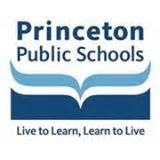Months and months of planning, discussion and public comment will come to a denouement at the Princeton Public Schools Board of Education meeting on Oct. 9, when officials decide whether to have a facilities referendum in December and, if so, for how much.
“There has been a lot of debate and a lot of feedback from the community,” board President Patrick Sullivan said on Oct. 2. “I think the board is very mindful that they want to hear all the feedback we hear and find some sort of compromise way forward. Any compromise has to, above all, acknowledge the schools need improvements and the adults need to come together and do the right thing for our kids. But we also need to do it in a way that is financially sustainable for everyone in our community.”
Recently, officials have floated a truncated proposal for $82.5 million, down from a $129.6 million proposal officials had been considering, to pay for a new school, buy property and improve all other schools. The referendum would be split into two ballot questions: One question would be for $26.9 million and the other question would be for about $55.6 million.
Board member Dafna Kendal, who is up for re-election in November, said on Oct. 2 that she supports the smaller plan because it addresses some of the needs at the overcrowded Princeton High School and elsewhere in the district, yet at a smaller tax impact. For a home assessed at the average of $837,074, the tax increase would be $164.83 in 2020 if both questions are approved.
“We continue to listen to feedback from the community and nothing is final,” she said.
“We haven’t voted yet,” Sullivan said. “But I’m confident we will have a broad majority for a fair compromise.”
If there is a referendum, it would take place on Dec. 11.
Superintendent of Schools Stephen C. Cochrane could not be reached for comment.
Officials, however, are being pulled in different directions, including from those who are calling for a bigger financial investment.
“Yes for Princeton Schools,” a group made up of former school board members Andrea Spalla and Molly Chrein and other residents, support the $129.6 million referendum and they are marshaling public support behind that idea.
As of Oct. 2, 464 people had signed an online petition backing the bigger plan, with the group saying it was looking to reach 1,000 signatures by next week’s board meeting. The group said it opposes the compromise proposal, which defers most of the work at the high school.
“We want the public to be able to decide what the priorities are,” said Nicole Pezold-Hancock, a spokeswoman for the organization, in a phone interview on Oct. 2. “We realize it is an investment by the community and that, for some people, it’s a difficult investment. And so, one thing we would like to do is turn the question toward let’s not tear apart this referendum, because the needs are very real. But let’s look at how we can mitigate some of the burden for the people who are most financially vulnerable in our community.”
When district administrators were considering a referendum in November, more than 230 residents signed their own petition urging officials to refrain from taking that step. They said there were too many unanswered questions and, instead, called for “smaller proposals” for a referendum in 2019.
“Given the vast scale of the proposed referendum and its $130 million cost, plus interest, local residents naturally want to make an informed decision,” said Princeton resident Joel Schwartz, a signer of the petition, on Oct. 2. “Those of us who strongly support our public school system want to ensure we are voting for a plan that best meets the needs of our children and their teachers. Further, given the school district’s disappointing record with past referendums, we are looking for the district to explain how and why they might do a better job with implementing the current plan.”
Members of the community are pressing officials for more information. Officials said they have received more than 20 government records requests related to the referendum, through the state’s Open Public Records Act.
“I can’t make a judgment about why this is being done,” Sullivan said. “It may just be that certain people want to know every detail about the referendum that is humanly possible to understand, but at any rate, the effect of all that has been to overburden the administration.”
By law, the school district has to respond to each request, which goes to the office of Business Administrator Stephanie Kennedy.
“I don’t really have anything much to say about it, other than it’s time-consuming and distracting from the real work of the district and me and my staff,” Kennedy said on Oct. 2.
“It is baffling that the Princeton Public Schools would not want to take every possible opportunity to provide more, not less, information to local residents before we vote,” Schwartz said. “Had more information been presented sooner, when questions were first asked in January, February and March, no OPRAs would have been necessary. Unfortunately, the responses to the OPRA requests have demonstrated conclusively what seems obvious to many, that the process was rushed and inadequate, and the body of evidence on which the board said it based its proposed referendum does not exist.”

